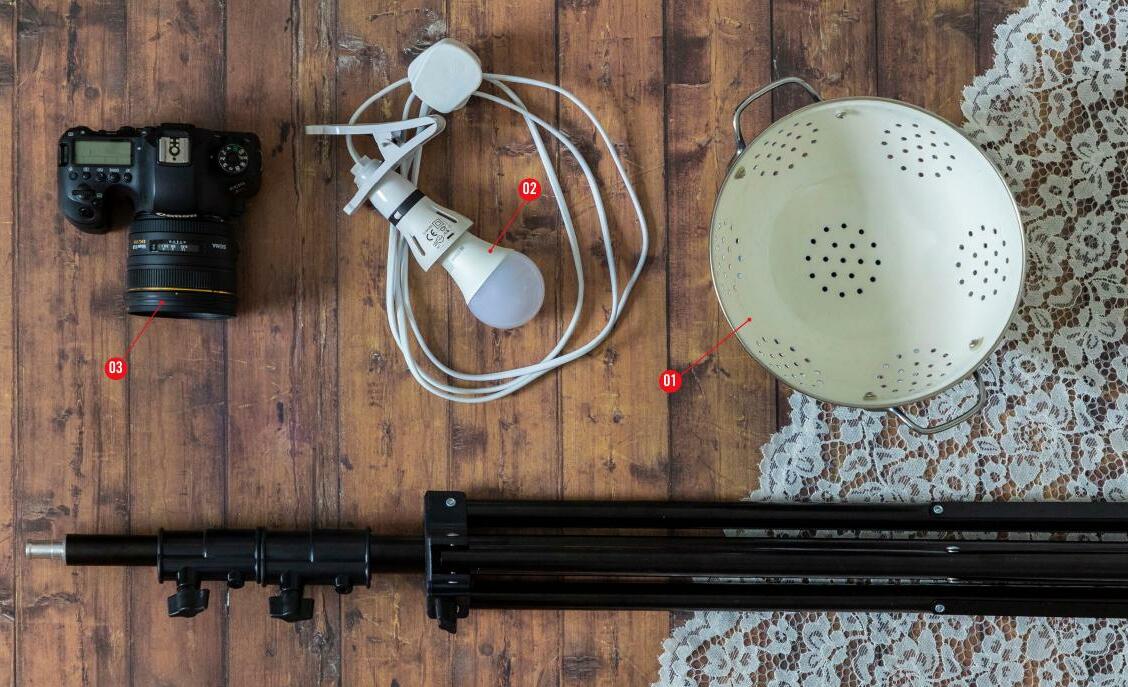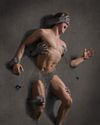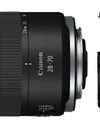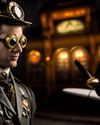
Portraiture can at times feel like a bit of a dark art. There’s so much jargon and little pieces of equipment to get up to speed on, from flashes to guide numbers, and lighting modifiers to triggers. It can be difficult to know where to start! That’s why this month we’re taking portraits back to basics using a single continuous light bulb to achieve three completely different looks. You can take these shots at home with a basic setup, you’ll need a dark background, a few lightstands, a curtain pole and then a few extra props that we run through below. The three techniques we cover in this project are the perfect place to start with artificial light in a studio setting as we’re using constant lighting. This is different from flashguns which don’t have a modelling light, so will be much easier to tweak the lighting and get the shadows falling on your model precisely where you need them to. Let’s get to it!
THE SET-UP SIMPLE MONO PORTRAITS
Discover the kit you need for beautiful black-and-white people pictures
01 HOUSEHOLD ITEMS We used cheap and cheerful props that you’ll likely have at home including a netted curtain, venetian blind and colander to cast shadows across our model’s face, though you can of course get creative with whatever you have to hand at home.
02 LIGHTING We used a standard LED bulb in a clip holder attached to a light stand so that we could move it around and fine tune the position, though you could of course use a floor lamp, constant lighting with stands or even a flash head with a modelling lamp.
Bu hikaye PhotoPlus : The Canon Magazine dergisinin June 2024 sayısından alınmıştır.
Start your 7-day Magzter GOLD free trial to access thousands of curated premium stories, and 9,000+ magazines and newspapers.
Already a subscriber ? Giriş Yap
Bu hikaye PhotoPlus : The Canon Magazine dergisinin June 2024 sayısından alınmıştır.
Start your 7-day Magzter GOLD free trial to access thousands of curated premium stories, and 9,000+ magazines and newspapers.
Already a subscriber? Giriş Yap

The Art of Copying Art - James Paterson shows you how to use your Canon gear to capture artwork and paintings the right way with simple camera and lighting skills
Whether you want to capture a painting like the above, digitise old prints or reproduce any kind of canvas, there's real skill in capturing artwork with your camera. Not only do you need the colours to be accurate, you also need to master the spread, angle and quality of the light to minimise glare and show the work at its best.This painting by the artist Bryan Hanlon has a wonderfully subtle colour palette. To reproduce the painting in print and digital form, it needs to be captured in the right way.

Fright night
Canon photographer and digital artist Alexander loves to craft incredible fantasy scenes with a spooky horror twist

Sharpen your shots with DPP
Sharpening a digital image also increases contrast at the edge of details

CANON ImagePrograf PRO-1100
Deeper blacks, better bronzing, greater lifespan and 5G Wi-Fi -Canon's new printer is full of new tech, says

Canon's new 'kit lens' is actually a half-price f/2.8 trinity lens!
The Canon RF 28-70mm F2.8 IS STM lacks a red ring, but borrows premium features from its L-series siblings

DREW GIBSON
Pro motorsports photographer Drew on why he hasn't (yet) switched to Canon's mirrorless system, why old-school techniques can be the most reliable, and the lessons learned from more than a decade shooting the world's biggest car brands

Up in smoke
Make a smoky shape in Affinity Photo and get to grips with the amazing Liquify Persona under the guidance of James Paterson

Expand your creativity with Generative Fill
Photoshop's Al-powered feature brings revolutionary new tools to image editing. James Paterson reveals all...

Turn your images into vintage postcards
Wish you were here? Sean McCormack explains how you can give your summer photographs a vintage postcard look

The Angel Malibu
Light painting an American movie producer in the Wadi Rum Desert in Jordan was a highly unlikely evening out for David!